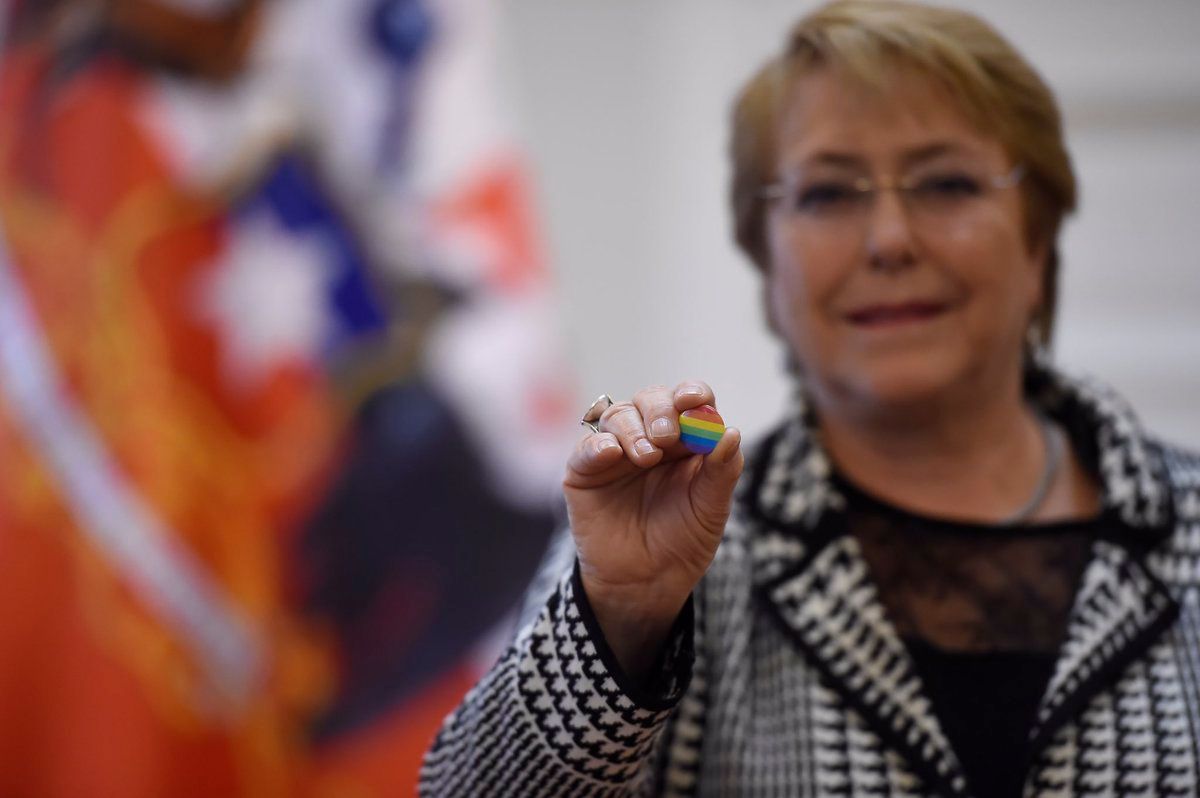 SANTIAGO, Chile — A week after a Chilean court allowed the nation to ease its complete ban on abortion, Chilean President Michelle Bachelet has presented a bill that would “legalize” same-sex “marriage” in the country.
SANTIAGO, Chile — A week after a Chilean court allowed the nation to ease its complete ban on abortion, Chilean President Michelle Bachelet has presented a bill that would “legalize” same-sex “marriage” in the country.
“We can’t let old prejudices be stronger than love,” she said as she signed the proposal during a ceremony at the presidential palace on Monday. “We do this with the certainty that it is not ethical or fair to put artificial limits on love, or to deny essential rights just because of the sex of those who make up a couple.”
The bill, which would also allow homosexuals to adopt children, now heads to Congress for deliberation and debate. It would change existing law that defines marriage as being between a man and woman to rather being a “union between two people.”
It is not clear whether there will be limits on the “two people” allowance, such as prohibitions against familial relations or age limitations.
“There are no conditions to love. To keep moving towards an inclusive Chile, today I signed the equal marriage bill,” Bachelet wrote on social media on Monday, including a photograph of herself holding a rainbow pin.
Since 2015, the nation has allowed for civil unions, and in 1999, Chile decriminalized homosexual sexual activity.
While the bill will not likely be passed before Bachelet leaves office next year, homosexual advocacy groups cheered the development.
“This day will be remembered as much as the day when women were granted the right to vote, slaves were freed or children born out of wedlock were granted the same rights,” Luis Larrain, the founder of the Iguales Foundation, told reporters.
Former President Sebastián Piñera, who is running for re-election in the November ballot, says that while he favors protecting the rights of homosexuals, he does not believe the institution of marriage should be altered.
“There should not be discrimination, but at the same time the essence of an institution such as marriage should be respected, which has always been about conserving the human race,” he said.
As previously reported, just last week, the Constitutional Court of Chile ruled 6-4 that an abortion bill presented in 2015 by Bachelet and passed by Congress earlier this month does not violate the nation’s constitution.
The measure permits unborn children up to 12 weeks in gestation (three months) to be killed in the instances of rape, risk to the life of the mother, or if the baby is not expected to survive in the womb.
For most of its history, abortion has been illegal in the country, with the exception of the period between 1931 and 1989, when a law was passed allowing for the unborn to be killed when the life of child’s mother is at stake. Gen. Augusto Pinochet restored the ban by declaration in 1989 during the last weeks of his regime.
Chile is mainly a Roman Catholic nation, with 66 percent of its inhabitants identifying as Catholic.
Become a Christian News Network Supporter...


